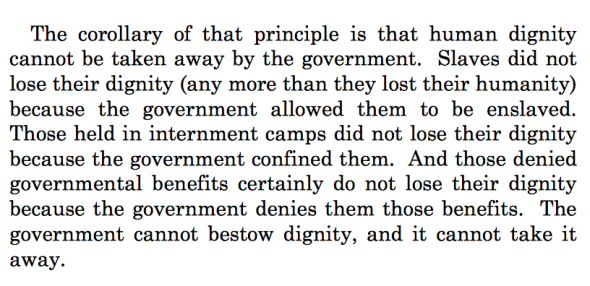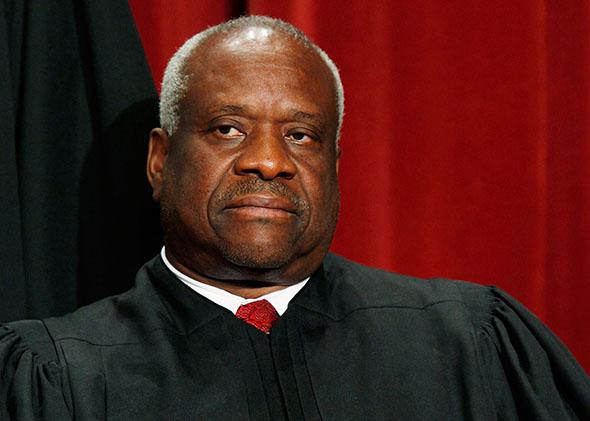Justice Clarence Thomas has a fervent dissent of the Supreme Court’s historic decision to invalidate same-sex marriage bans. His argument, joined by Justice Antonin Scalia, quibbles with the definition of liberty itself. “Since well before 1787, liberty has been understood as freedom from government action, not entitlement to government benefits,” Thomas writes. Working from this principle, Thomas insists that the petitioners in the case “have in no way been deprived” of their liberty. “They have been able to travel freely around the country, making their homes where they please. Far from being incarcerated or physically restrained, petitioners have been left alone to order their lives as they see fit.” And yet he takes the argument even further—because human dignity “has long been understood in this country to be innate,” here’s who else Thomas thinks hasn’t been deprived of it:

See more of Slate’s end-of-term Supreme Court coverage, including:
